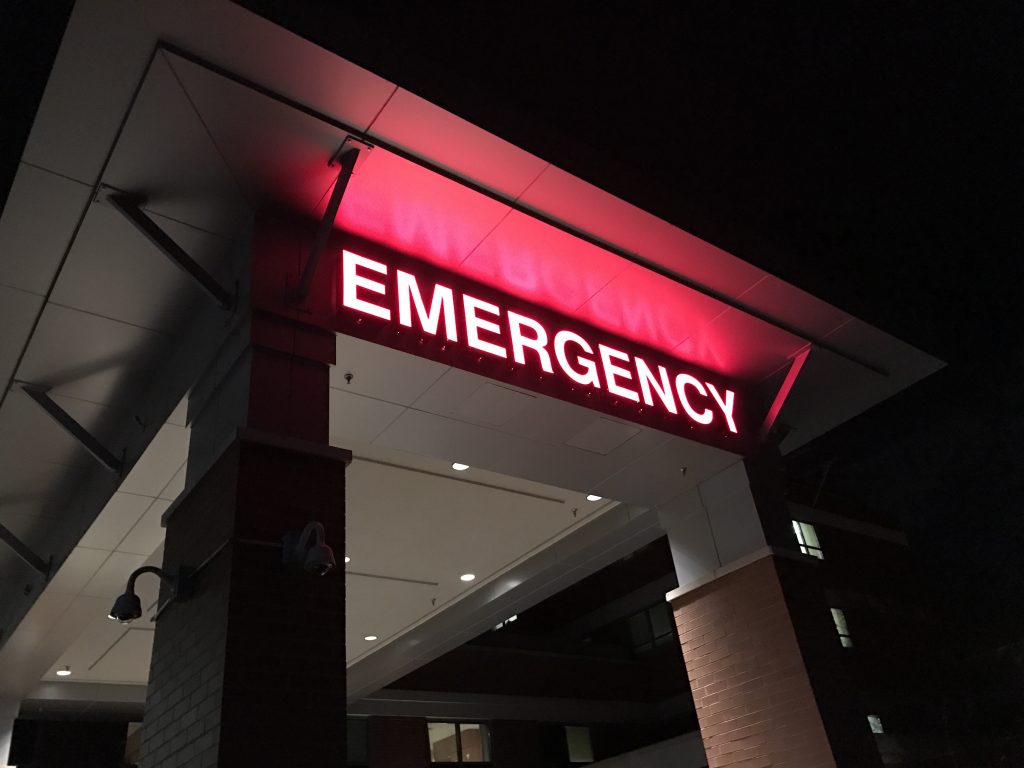As you get older, your chances of visiting the emergency room (ER) rise significantly. According to the CDC, the probability of someone aged 51 visiting the emergency room is 51%. The figure jumps to 83% by the time you hit 75.
So, what happens when you need emergency care and don’t have sufficient funds to cover your treatment? Does Medicare kick in and foot the bill? Let us find out.
Does Medicare Cover Emergency Care Costs?
Yes. Typically, Medicare provides coverage for emergency care costs for sudden illness, injuries, and other illnesses that may worsen pretty quickly. Specifically, Medicare Part B will cover your ER visits.
And since emergencies can happen anywhere, anytime, Medicare is designed to cover ER visits to any hospital or emergency room in the country. However, the program only covers emergency care services in foreign countries in a few special circumstances.
Medicare Part B automatically covers your ambulance trips if transportation in an ordinary vehicle could endanger your life. If your ambulance trip to the ER is medically necessary, you will only be required to pay 20% of the overall charges once you meet your Part B deductible.
Medicare Part B can also cover air ambulance trips in a helicopter or airplane; if doctors believe that you need prompt emergency care, than what road transport can offer.
Does Medicare Part A Cover Emergency Room Visits?
Whether Medicare Part A covers your ER visits or not will largely depend on your circumstances. If you are successfully treated and released from the emergency department without being admitted as an inpatient, Medicare Part A won’t cover your ER visit.

Even if you stay in the emergency room overnight, you are still considered an outpatient unless your doctor writes an official order admitting you to the hospital for further treatment.
In most cases, you must be admitted as an inpatient for at least two consecutive midnights for your Medicare Part A to cover your hospital expenses.
Which Parts of Medicare Cover Emergency Care If You’re Not Admitted?
The following Medicare Parts will kick in and pay your emergency care cost if you are not admitted:
1. Medicare Part B
Medicare Part B is generally designed to pay for your emergency room visits whether you have developed a sudden illness, an illness that may get worse or have been hurt.
In most cases, Medicare Part B will pay up to 80% of your emergency care costs while you are responsible for the remaining 20%. In 2021, the annual deductible for Medicare Part B is $203.
2. Medicare Part C
Medicare Part C is also known as Medicare Advantage and bundles together Medicare Parts A, B, and D. It also offers additional services that mainly depend on the plan you choose.
Although Medicare Advantage is offered by private insurance companies, the plan still covers the cost of ER visits the same way traditional Medicare does.
The only difference is that a Medicare Advantage plan may structure the billing and costs differently from traditional Medicare. For instance, you may be requested to pay one copayment per visit to account for both the ER and the doctor.
3. Medicare Part D (Prescription Drug Coverage)
Medicare Part D is specifically designed to provide prescription drug coverage. Typically, if you are given any intravenous (IV) medications while in the emergency room, Medicare Part B or Part C will cover the cost.
However, if you need some drugs to take at home and are given by the hospital while you are still in the ER, it is usually considered a self-administered drug. If the drug you are given is on your Part D drug list, then Medicare will pay for the prescription.
4. Medicare Supplement (Medigap)
In most cases, Medigap plans will only provide emergency care coverage if you travel outside the United States.
Keep in mind that traditional Medicare doesn’t cover costs for emergency care if you are travelling outside the country. Only a few Medigap plans cover this cost.
Therefore, if you travel frequently, you need to ensure you choose a Medigap plan that offers emergency care coverage outside the country.
What Services Can You Receive at the Emergency Room?
Typically, you can receive a wide range of medical services during your emergency room visit. They include:
- Medications
- Laboratory tests.
- X-rays.
- Medical supplies and equipment such as crutches.
- Medical or surgical procedures.
- Scans or screenings.
The Medical services you receive may be billed jointly as one service or separately depending on the healthcare facility you visit.
How Much Does ER Visit Cost?
According to CDC, approximately 145 million people visit the ER every year. Out of this number, at least 12.5 million are admitted to the hospital for inpatient care as a result.
Medicare usually charges copay for every ER visit. In addition to the copay, you are also expected to pay coinsurance for any doctor services you may receive in the emergency room.
Medicare Part B pays 80% of the Medicare-approved amount while you are responsible for the remaining 20%. Part B deductible is also applicable.

The total amount of money you pay for emergency care will depend on the type of hospital you visit, whether you have additional insurance coverage such as Medigap/ Medicare Advantage, where you live, the condition being treated for, among other factors.
According to the Department of Health and Human Services, the average amount of money patients paid for an ER visit in 2019 was $776. However, you need to remember that costs may change drastically if you are admitted to the hospital for further treatment.
Summary
Generally, Medicare has different parts that cover different emergency room services. However, the most significant thing to remember is that unless a doctor admits you in the hospital for at least two midnights, Part A won’t cover your emergency care costs.
Medicare Part B is the designated plan for covering ER visits but pays up to 80% of the Medicare-approved amount. You will be responsible for the remaining 20%. You are also responsible for copayments, deductibles, and coinsurance.
Whenever you or your loved one seeks emergency care, be sure to ask the estimate of service costs, including consultation and doctor fees, so you can approximate how much money you will be required to pay out-of-pocket.
Talk to us today for Medicare advice and assistance from licensed agents.
